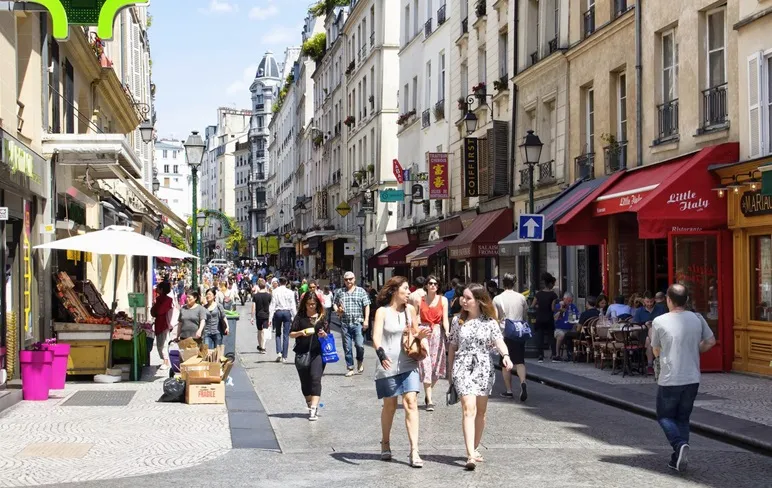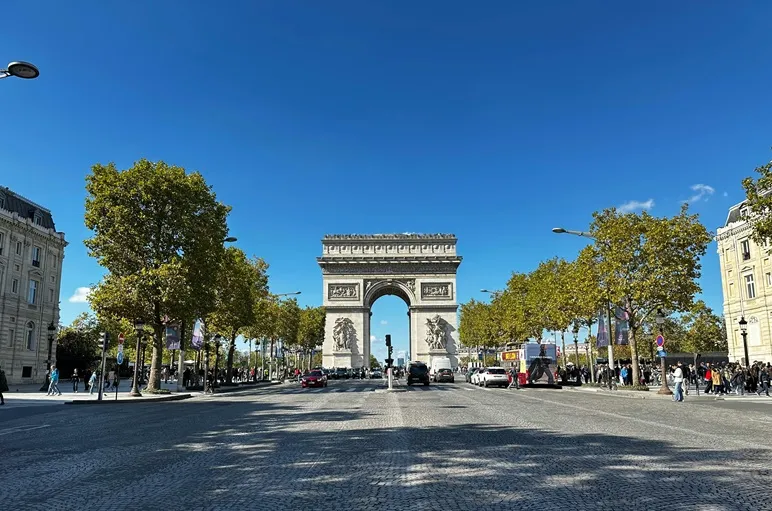Dreaming of exploring France with complete freedom and comfort? Renting a car is the key to unlocking adventures filled with surprising discoveries and breathtaking views. From the winding roads of Provence’s countryside to the stunning coastal routes of the Côte d’Azur, having a personal vehicle allows you to take control of your journey and uncover hidden wonders in the “Hexagon.” This guide offers invaluable tips for renting a car in France, ensuring a safe, budget-friendly, and unforgettable trip.
Why Rent a Car to Explore France?
France is renowned for its modern public transportation system, yet renting a car can provide undeniable advantages:
- Freedom and flexibility: Plan your own itinerary, make spontaneous changes, and discover off-the-beaten-path destinations.
- Time efficiency: Easily move between attractions, especially in rural areas or regions with limited public transport.
- Immersive experiences: Fully enjoy France’s charm by stopping to photograph scenic landscapes, savor the views, or venture into ancient villages.
- Convenient for families or groups: Renting a car makes mobility hassle-free, eliminating concerns about carrying luggage or waiting for buses or trains.
Essential Preparations Before Renting a Car
To ensure a smooth journey, be well-prepared with the following steps:
1. Driver’s License and Necessary Documents
- International Driving Permit (IDP): Mandatory for non-EU citizens. This permit is only valid when presented alongside your original driver’s license.
- Original driver’s license: Valid and appropriate for the vehicle you plan to rent.
- Passport: Necessary for identity verification.
- Credit card: The name on the card must match the renter’s name. Credit cards are used for deposits and unforeseen expenses.
- Reservation confirmation: Keep a printed or digital copy to present during pickup.
2. Research Car Rental Companies Thoroughly
- Compare prices: Evaluate rates from various companies to find the best deal.
- Read terms and conditions: Pay attention to insurance policies, additional fees, cancellation policies, and other details.
- Check customer reviews: Browse travel websites or forums for unbiased insights into service quality.
- Choose reputable providers: Trusted car rental companies in France include Europcar, Hertz, Avis, Sixt, and Enterprise.
3. Book Early
- Save money: Early reservations often come with discounted rates.
- Better selection: Booking in advance ensures access to a wider variety of car models and services.
- Avoid unavailability: Particularly during tourism peak seasons, reserving ahead guarantees availability.
4. Select the Right Vehicle
- Number of passengers: Opt for compact cars if traveling solo or as a pair. Choose larger models for families or groups with ample luggage space.
- Luggage needs: Make sure the car is spacious enough to store your belongings.
- Type of terrain: For mountainous routes or winding roads, choose vehicles with powerful engines and reliable braking systems.
- Fuel efficiency: Economical cars ensure savings on fuel.
5. Opt for Comprehensive Insurance
- Basic coverage: Most companies include Collision Damage Waiver (CDW), offering limited protection.
- Additional coverage: Consider extended policies like liability insurance or personal accident coverage for enhanced protection.
- Understand the policy: Familiarize yourself with coverage limits, deductibles, and exclusions.
6. Learn Traffic Rules and Road Signs
- Traffic laws: Study key driving regulations in France, such as speed limits, priority rules, and usage of headlights.
- Road signs: Become acquainted with common traffic signs for safe and lawful driving.
- Restricted traffic zones (ZCR): Research cities with restricted access zones to avoid penalties.

French street view with charming urban architecture.
7. Use Navigation Apps
- Google Maps: Ideal for route planning, traffic updates, and finding key destinations.
- Waze: Community-based navigation app offering real-time traffic info, road alerts, and alternate routes.
- Rental company apps: Some car rental firms provide apps for managing bookings, locating fuel stations, and accessing customer support.
Car Pickup and Return Tips
1. Thoroughly Inspect the Car
- Before pickup:
- Exterior check: Inspect the body, windshield, headlights, and mirrors for scratches, dents, or damages.
- Interior check: Ensure seats, controls, air conditioning, and electronic systems are functioning.
- Tires: Verify tread depth and air pressure.
- Fuel level: Note the current fuel status.
- Documentation: Photograph or record any imperfections to provide evidence if disputes arise.
- Report damages: Notify staff immediately if you spot any issues and request written acknowledgment.
2. Understand Vehicle Features
- Ask questions: Request guidance from rental staff on operating key features such as navigation systems, cruise control, or lighting.
- Read the manual: Review the user guide to understand advanced functions.
3. Return the Car On Time and to the Correct Location
- Stick to the schedule: Late returns might incur additional fees.
- Confirm the drop-off point: Ensure the vehicle is returned to the specified location on time.
- Post-return inspection: Conduct a final check with the company’s staff and sign the vehicle condition report.
- Retain documentation: Keep the return confirmation as proof of completion.
Driving Safely in France
1. Observe Traffic Regulations
- Speed limits: These vary by location:
- Highways: 80 mph (70 mph in rain).
- Main roads: 50 mph.
- Urban areas: 30 mph.
- Use of headlights: Daytime headlights are mandatory outside urban zones.
- Seatbelt usage: Required for all passengers.
- Phone restrictions: Hands-free devices are the only allowed method for calls.
- Alcohol laws: The blood alcohol limit is set at 0.05%.
2. Pay Attention to Road Signs
- Warning signs: Indicate potential hazards like sharp curves, slippery roads, or crosswalks.
- Directions: Show navigation information such as distances and services.
- Prohibitory signs: Specify forbidden actions like parking, overtaking, or restricted entry points.
3. Understand Toll Road Systems
- Highway tolls: Most highways in France involve charges.
- Payment methods:
- Cash: Accepted at toll stations.
- Credit card: Many machines cater to card payments.
- Telepass device: Electronically processes fees without halting at barriers.
4. Follow Parking Rules
- Designated spots: Park in approved zones like public lots or metered spaces.
- Avoid restricted areas: Stay clear of prohibited zones such as sidewalks, bus lanes, or driveways.
- Pay parking fees: When relevant, ensure proper payment and adhere to time limits.

Planning for an independent journey in France.
5. Prioritize Road Safety
- Stay alert: Focus on driving, maintain safe distances, and avoid drowsy driving.
- Perform regular maintenance: Check tires, brakes, lights, and other systems frequently.
- Carry basic tools: Equip yourself with essentials like a tire pump and flashlight.
- Contact roadside assistance: Reach out to the rental company or emergency services if breakdowns occur.
Suggested Itineraries for France Road Trips
1. 7-Day Tour: Provence and the Côte d’Azur
- Day 1: Arrive in Nice, pick up your car and explore Promenade des Anglais and Old Town.
- Day 2: Visit Monaco and Monte Carlo.
- Day 3: Head to Cannes to explore Croisette Boulevard and beaches.
- Day 4: Travel to Aix-en-Provence and stroll Cours Mirabeau, visit Atelier Cézanne.
- Day 5: Tour Luberon’s ancient villages (e.g., Gordes, Roussillon).
- Day 6: Explore Avignon – see the Papal Palace and Pont Saint-Bénézet.
- Day 7: Return the car in Nice, then fly home.
2. 10-Day Tour: Loire Valley and Brittany
- Day 1: Begin in Paris, rent a car, and drive to Loire Valley.
- Day 2: Discover Château de Chambord and Château de Chenonceau.
- Day 3: Explore Château d’Amboise and Château de Villandry.
- Day 4: Drive to Brittany and visit Rennes.
- Day 5: Visit Saint-Malo and Dinard.
- Day 6: Tour Mont Saint-Michel.
- Day 7: Arrive in Nantes, check out Les Machines de l’île and Château des Ducs de Bretagne.
- Day 8: Return to Loire Valley.
- Day 9: Visit Château d’Azay-le-Rideau and Fontevraud Abbey.
- Day 10: Return the car in Paris and depart.
Estimated Costs for Renting a Car
Rental costs can vary based on several factors such as:
- Vehicle type: Compact cars are cheaper than SUVs or luxury models.
- Rental duration: Longer bookings may offer discounted rates.
- Rental agency: Pricing differs across companies.
- Insurance coverage: Extra insurance may raise overall expenses.
- Tourism season: Peak seasons tend to have higher car rental costs.
Average expenses to anticipate:
- Daily rental rates: €30–70/day.
- Fuel: Approximately €1.60–1.80/liter.
- Toll fees: Vary by route.
- Parking: Around €2–3/hour in major cities.
Conclusion
Renting a car is an excellent way to explore France with independence and flexibility. By preparing thoroughly, adhering to traffic rules, and driving responsibly, you can enjoy a memorable trip packed with joy and adventure. Start planning your road trip today and uncover the hidden gems of the “Hexagon”!